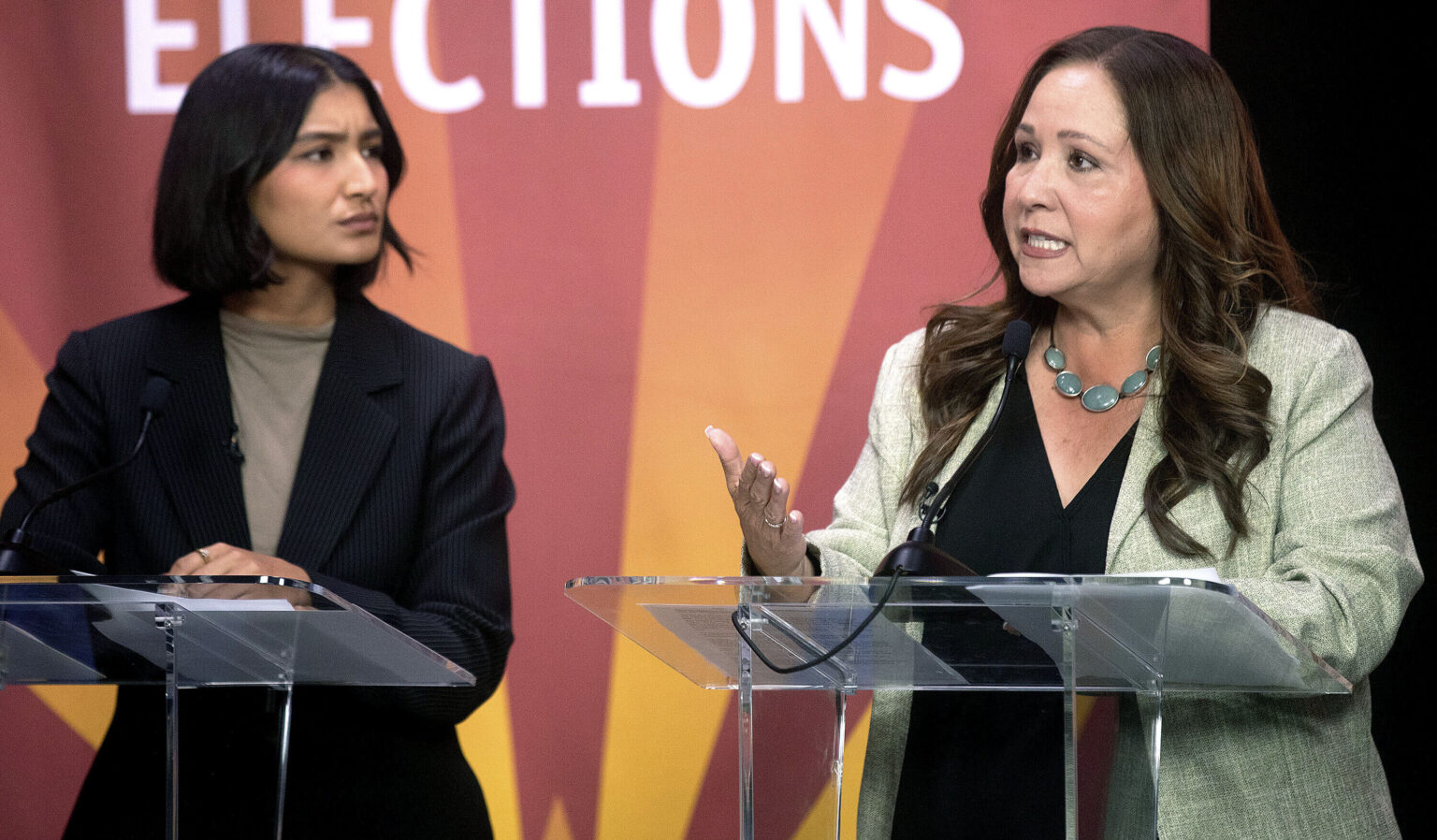Adelita Grijalva Secures Democratic Nomination in Arizona Special Election
On Tuesday, Adelita Grijalva emerged victorious in the Democratic primary for Arizona’s upcoming special House election, securing her party’s nomination by a significant margin. This victory marks a pivotal moment, as she aims to succeed her late father, Raúl Grijalva, who passed away in March due to lung cancer at age 77. The primary contest not only reflected her political strength but also underscored ongoing debates within the Democratic Party regarding generational change, political legacy, and the influence of established family names.
Background and Context of the Race
Adelita Grijalva, aged 54, previously served as a supervisor in Pima County and was widely considered the frontrunner to fill her father’s congressional seat. Her main competitors included four other candidates, notably Deja Foxx, a 25-year-old content creator representing Generation Z, who campaigned on themes of renewal and challenging the political status quo. According to the Associated Press, Grijalva secured approximately 62% of the vote with nearly 65% of ballots counted, comfortably outpacing Foxx, who garnered around 21%.
Given the district’s strong Democratic leanings, Grijalva is expected to face Republican Daniel Butierez in the upcoming fall election, where her chances of victory are considered highly favorable.
Generational Divide Over Ideology or Legacy?
Unlike some other Democratic primaries this year, which centered on ideological shifts or policy differences, the Arizona race primarily revolved around questions of political inheritance and generational change. Both Grijalva and Foxx ran on progressive platforms, with endorsements from prominent figures such as Senators Bernie Sanders and Alexandria Ocasio-Cortez supporting Grijalva, and activist David Hogg backing Foxx. The debate was less about policy and more about whether political seats should be passed down within families or earned through independent campaigns.
While Grijalva emphasized building upon her father’s legacy, critics argued that congressional seats should not be inherited, advocating for fresh leadership. The race also featured Daniel Hernandez, a 35-year-old former state legislator known for heroically saving Congresswoman Gabby Giffords’ life during a mass shooting, adding another layer of experience and local recognition to the contest.
Lessons from the Primary Results
The Myth of the Next Big Progressive Wave
Deja Foxx’s campaign initially appeared to gain momentum, leading some Democrats to speculate about a potential upset similar to Zohran Mamdani’s surprising victory in New York’s mayoral primary earlier this year. Mamdani’s win was driven by a grassroots, anti-establishment message that resonated with younger voters and social media followers. However, Foxx’s campaign faced challenges in replicating that success, partly because Grijalva’s support base included many of the same liberal organizations and leaders backing Mamdani, and because Grijalva lacked prior federal experience.
The Power of Name Recognition and Political Networks
Despite her relative lack of controversy, Grijalva benefits from a well-established political legacy in the district, which encompasses parts of Tucson and the borderlands. Her family name carries significant weight, making her a formidable candidate in an off-cycle special election. Strategists note that this advantage was instrumental in her securing the nomination, especially given the district’s Democratic dominance and the low turnout typical of special elections.
The Role of Digital Campaigning and Media
Foxx’s campaign showcased the growing influence of social media and digital outreach in modern politics. Her ability to mobilize supporters online and her innovative use of platforms like TikTok and Instagram demonstrated the potential for content creators to shape electoral outcomes. Her campaign also partnered with media outlets such as Meidas Touch, the Lincoln Project, and Courier Newsroom, producing a documentary series that chronicled her campaign journey. These efforts aimed to connect with younger voters and demonstrate new ways for Democrats to engage with their base.
Nevertheless, traditional campaign strategies-endorsed by established political figures and organizations-proved more effective in this race. Grijalva secured endorsements from key Democratic leaders, including both of Arizona’s U.S. Senators, as well as influential groups like Emily’s List, the Congressional Progressive Caucus, and the Working Families Party. These endorsements helped solidify her position and secure her victory.
Continuity of the Democratic Machine in Special Elections
The Arizona primary is part of a broader pattern observed this year, where candidates closely aligned with the Democratic establishment have prevailed in special elections following the deaths of incumbent members. Last month, Fairfax County Supervisor James Walkinshaw secured the Democratic nomination to succeed Rep. Gerry Connolly, who also died in office earlier this year. Like Grijalva, Walkinshaw leveraged his experience working with Connolly and received endorsements from prominent Democratic figures, illustrating the continued strength of the party’s institutional support in these races.
Looking Ahead: What This Means for the Democratic Party
As the party navigates a challenging electoral landscape ahead of the 2024 elections, these primaries reveal a complex picture. While grassroots and insurgent campaigns can generate excitement and mobilize younger voters, the established political networks and name recognition remain powerful tools for securing nominations and victories. The Arizona race exemplifies how legacy and institutional backing continue to play a decisive role, even as the party seeks to appeal to a broader, more diverse electorate.
In summary, Adelita Grijalva’s primary win underscores the enduring influence of political dynasties and the importance of traditional campaign infrastructure, even amid a digital revolution reshaping political communication. As Democrats look to the future, balancing innovation with established support will be crucial in maintaining electoral success across diverse districts and demographics.

